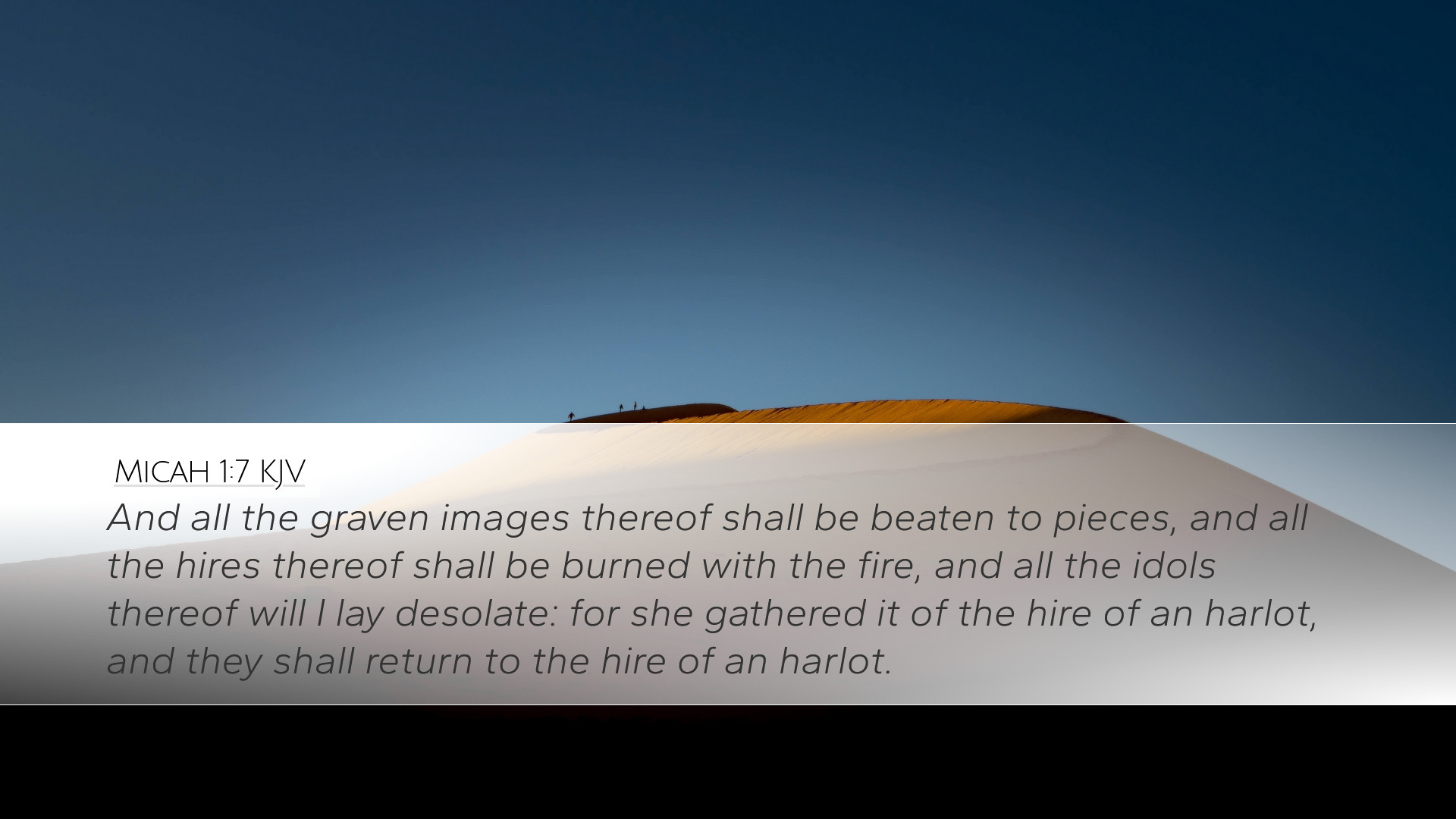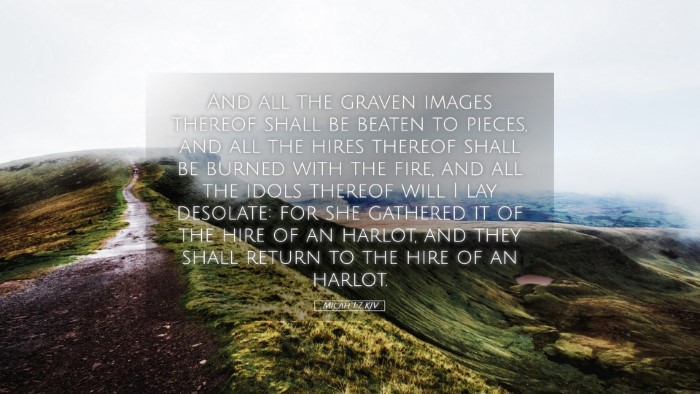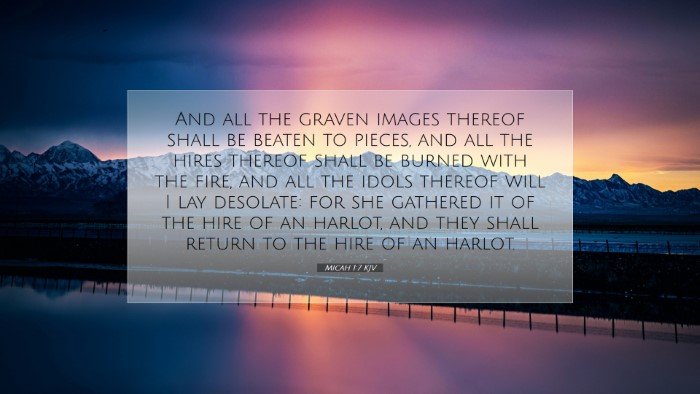Old Testament
Genesis Exodus Leviticus Numbers Deuteronomy Joshua Judges Ruth 1 Samuel 2 Samuel 1 Kings 2 Kings 1 Chronicles 2 Chronicles Ezra Nehemiah Esther Job Psalms Proverbs Ecclesiastes Song of Solomon Isaiah Jeremiah Lamentations Ezekiel Daniel Hosea Joel Amos Obadiah Jonah Micah Nahum Habakkuk Zephaniah Haggai Zechariah MalachiMicah 1:7
Micah 1:7 KJV
And all the graven images thereof shall be beaten to pieces, and all the hires thereof shall be burned with the fire, and all the idols thereof will I lay desolate: for she gathered it of the hire of an harlot, and they shall return to the hire of an harlot.
Micah 1:7 Bible Commentary
Commentary on Micah 1:7
Bible Verse: Micah 1:7 - "And all the graven images thereof shall be beaten to pieces, and all the hires thereof shall be burned with fire, and all the idols thereof will I lay desolate: for she gathered it of the hire of an harlot, and they shall return to the hire of an harlot."
Introduction
The verse from Micah 1:7 serves as a profound indictment against the idolatry that was prevalent in Israel during Micah's time. This passage not only reflects the judgment of God against the sins of His people but also encapsulates the bleak spiritual condition of Israel. In our analysis, we draw insights from various public domain commentaries to provide a comprehensive understanding of this critical text.
Contextual Background
Micah was a contemporary of the prophets Isaiah and Hosea, prophesying during the 8th century B.C. His message was primarily directed toward both Israel and Judah, addressing the corruption in both the political and religious realms. The opening chapter of Micah presents a vivid picture of God's impending judgment and the reasons behind it.
Exegesis of the Verse
- "All the graven images thereof shall be beaten to pieces"
- "All the hires thereof shall be burned with fire"
- "All the idols thereof will I lay desolate"
Matthew Henry comments that this portion of the verse signifies the complete destruction of idols and false gods that Israel had turned to in their rebellion against Yahweh. The phrase indicates that these images, crafted by human hands, will meet a deserved end, highlighting God's sovereignty over all created things.
Albert Barnes interprets the "hires" as the profits and resources garnered from idolatrous practices. This indicates not only the judgment upon the idols themselves but also the economic systems built around them. It underscores that the means through which idolatry sustains itself will be completely obliterated, leaving no trace of its existence.
Adam Clarke elaborates on the notion of desolation, suggesting that God will render these idols utterly useless and devoid of power. This desolation serves as a stark reminder of the futility of placing trust in anything but the true and living God. The idols of Israel, which had purported to bring prosperity and protection, will be shown to be impotent.
Thematic Analysis
This verse encapsulates several critical themes relevant to theological discourse:
- The Sovereignty of God: The destruction of idols is a demonstration of God's ultimate authority over all creation. He is depicted not only as the one who judges but as the one who has the power to restore true worship among His people.
- The Futility of Idolatry: In a world where many still pursue material or spiritual idols, this verse serves as a poignant reminder that reliance on anything other than God is both temporary and perilous.
- The Call to Repentance: Implicit in this judgment is a call for repentance. The people of Israel are reminded of the spiritual corruption that comes from engaging with falsehoods and the importance of returning to true worship.
Application for Today
For pastors, students, and theologians, Micah 1:7 presents several applications:
- Identifying Idols: Just as ancient Israel held onto graven images, modern believers must identify and cast down the idols that may hinder their relationship with God.
- Understanding Judgment: God's judgment, while severe, is a key aspect of His holiness. A thorough understanding of this can promote a healthy fear of God within the church today.
- Encouraging True Worship: Encouraging congregations to engage in authentic worship that acknowledges God’s sovereignty and renounces idolatry is crucial for spiritual health.
Conclusion
Micah 1:7 serves not only as a historical account of Israel's impending doom due to idolatry but also as a timeless warning relevant to every generation. Through a synthesis of various commentaries, we grasp deeper insights into divine judgment, human folly, and the ever-present call to return to the true worship of God. The themes articulated in this passage invite ongoing reflection and transformation in the lives of believers.


